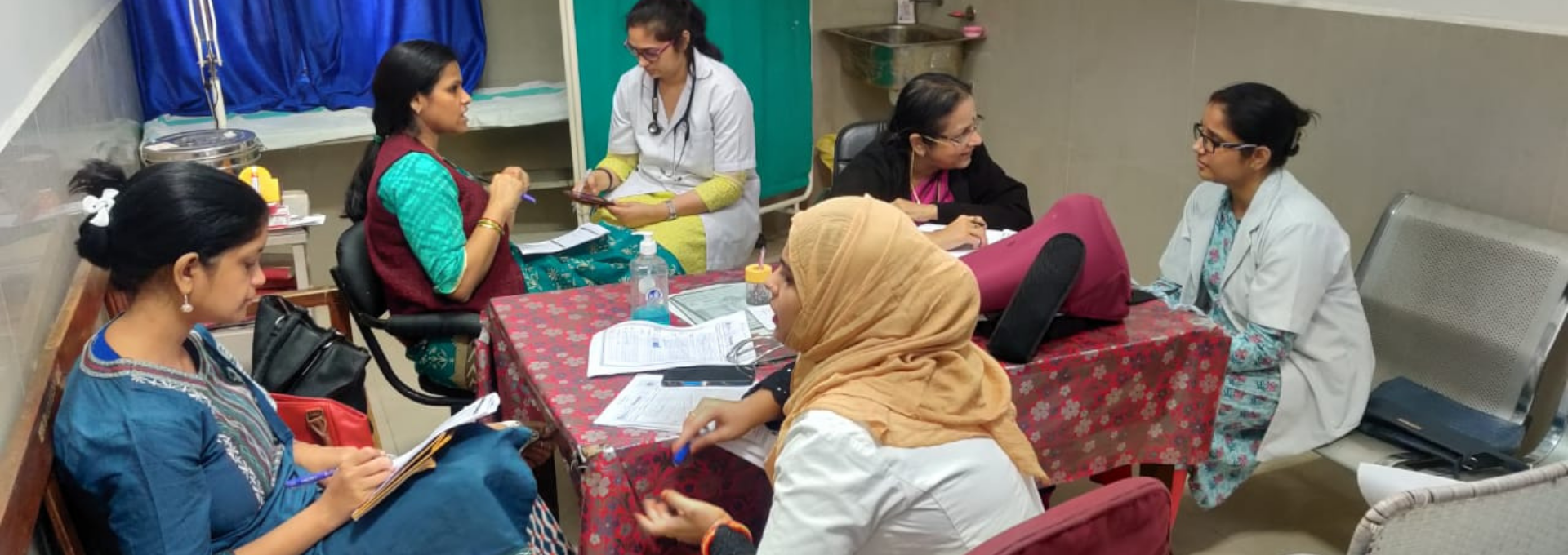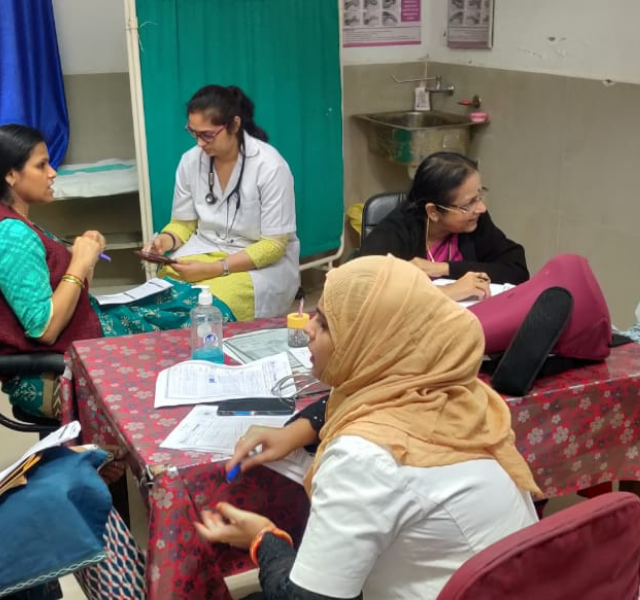

UP TSU supported the Government of Uttar Pradesh in designing and implementing a ‘Regional Resource Training Centres’ (RRTCs) initiative in Uttar Pradesh with the objective of reducing maternal and neonatal mortality and morbidity. Strengthening the capacity of specialists/MBBS doctors to manage maternal and newborn complications (Signal Function 1-9) was the core activity. A network of eight government medical colleges was created in 2017 to serve as RRTCs that provide training and clinical mentoring on Comprehensive Emergency Obstetric and Newborn Care (CEmONC) services to government doctors posted in 87 First Referral Unit (FRU) health facilities in 25 High Priority Districts (HPDs) of Uttar Pradesh. The RRTC initiative is an excellent example of collaboration between academic medical institutions and the public healthcare service delivery system.
Activities under RRTC comprise of: (i) Regional training of FRU doctors (ii) On site Mentoring visits to District Hospitals/Community Health Centre-FRUs and (iii) Continuing Medical Education (CME). On-site and on the job clinical mentoring is provided to doctors in designated districts for the delivery of quality CEmONC services. The Medical College faculty of the RRTC visit the FRU facilities on a quarterly basis. They score the facility’s services, as well as the clinical competency of the doctors using Objective Structured Clinical Examination (OSCE) checklists. They provide feedback to the head of the health facility and track progress and support on corrective measures that were recommended during the previous visit(s). The mentoring visit is preceded by simulation-based training in CEmONC by the faculty at the medical college. UP TSU provides FRU specific data which helps the mentors to focus on specific areas for improved performance. FRU doctors with low scores (<70%) and doctors who missed the mentoring visits, receive follow up and are encouraged to participate in a CME training session on CEmONC.
During RRTC faculty mentoring visits, it was found that most non-RRTC trained doctors and some RRTC trained doctors had low levels of technical scores. Gaps in knowledge were identified during on-site mentoring of doctors using OSCE checklists of treatment protocols for maternal complication(s) management. Even if they were mentored onsite, if their technical score was low (<70%), separate capacity building sessions were conducted to enhance their knowledge, skills and confidence for professional performance. Thus quarterly CMEs focusing on priority topics or themes that were organised at the RRTC Medical College and facilitated by the RRTC faculty and UP TSU.
A typical CME session is a day-long activity conducted at the Medical Colleges, wherein, half a day is dedicated to faculty-led presentations on common maternal complications and protocols of management according to Government Guidelines. The second half of the day is dedicated to hands-on, simulation-based clinical mentoring on complication management to build practitioner confidence.
Maternal Health topics covered over three CME sessions: